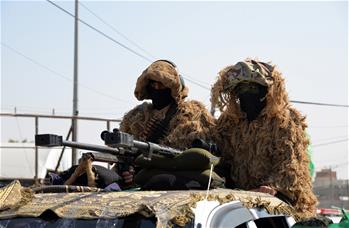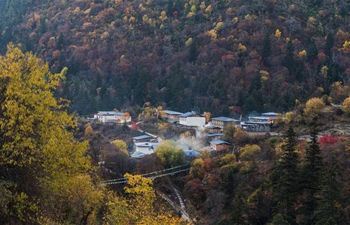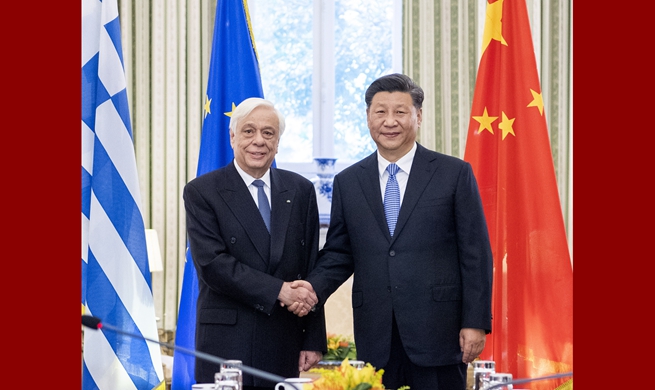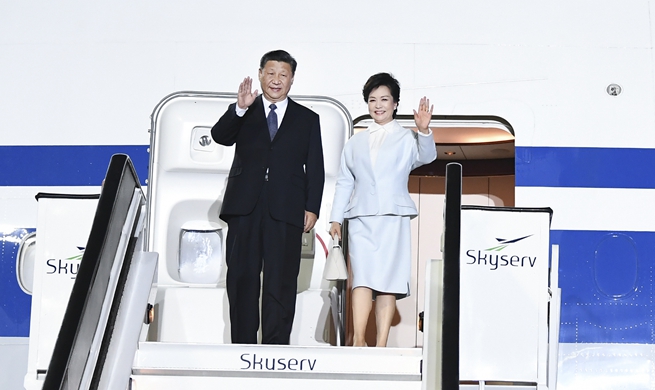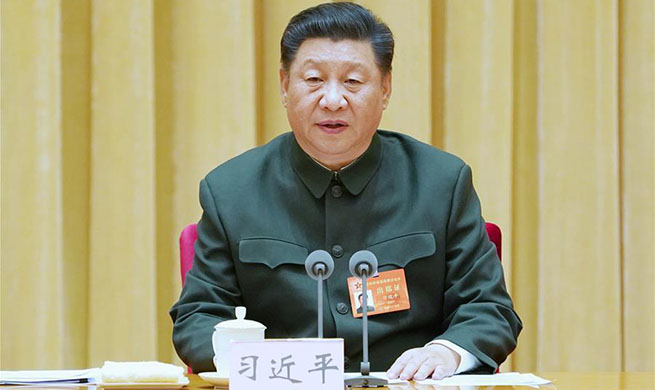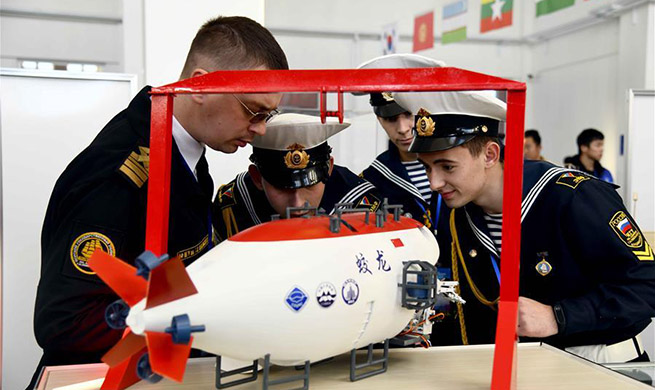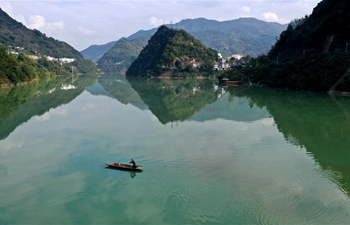BEIRUT, Nov. 11 (Xinhua) -- Hezbollah leader Sayyed Hassan Nasrallah said Monday that the United States is working on imposing an economic siege on Lebanon to prevent the country from solving its problems, local TV channel MTV reported.
"We have a lot of ways that would allow us to get over with our economic crisis and reach prosperity, but the United States aims at pressuring our country by holding it as a hostage for its interests in the region," Nasrallah said in a televised speech.
Nasrallah said that the United States is preventing some countries, including Russia and Iran, from helping Lebanon in implementing important projects which would activate productive sectors in the country and create job opportunities for the youths.
The Hezbollah leader said that some countries are even ready to offer donations to Lebanon but these are still on hold due to U.S. pressure.
He added that some Arab companies went to Syria to participate in the country's reconstruction but U.S. ambassadors in these countries threatened against negative repercussions of such initiatives.
Nasrallah also criticized the United States for ruining Lebanon's reputation by giving an impression that the country is not secure which would reduce the flow of investments.
"Look at the crimes statistics in the United States and compare them with (those of) Lebanon," he said, adding that Lebanon is more secure.
He also criticized the United States for imposing sanctions against Lebanese banks, which he considered as sanctions against the Lebanese people and not Hezbollah because his party does not use any Lebanese banks.
"We told the United States, on several occasions, that we do not use Lebanese banks for our transactions. Everybody knows the source of our money and we do not need to repeat this," he said.
The latest sanctions by the U.S. treasury's office were imposed against Jammal Trust Bank on Aug. 29 for "brazenly enabling" Hezbollah's financial activities.
In 2011, the Beirut-based Lebanese Canadian Bank was charged by the United States with money laundering and direct links with Hezbollah and was acquired later by Societe Generale de Banque au Liban.
Nasrallah emphasized the need to activate the country's production sectors, such as agriculture and industry which would create job opportunities.
"We need to make one very important step to activate these sectors. We want the Lebanese government to send an official delegation to Syria for us to be able to use the Boukamal crossing to send our products to the rest of the Arab countries," he said.
Nasrallah noted that the United States is worried that Hezbollah would use this border to receive weapons.
"We do not need any rockets or weapons. We have a big number of rockets that we do not even know where to store them," he said.
Nasrallah slammed the United States for impeding all these initiatives because they considered the resigned government as a Hezbollah cabinet.
"If this was truly our government, the first thing we would have done is negotiating with Syria to allow our exports to reach Arab countries while lowering imposed taxes on our exports to increase revenues of farmers and industrialists in Lebanon," he said.
Lebanese farmers and industrialists have previously suffered from inability to export products by land to Arab countries because of the closure of Nasib border following heavy clashes between rebel fighters, who encircled the Nasib crossing, and Syrian government forces near the area.
Nasib border was re-opened later but Lebanese exporters' hopes for an increase in their exports were dashed as Syria imposed additional fees on each container that crosses its borders.
Therefore, exporters called on several occasions for a direct dialogue with Syria to facilitate the transport of their products by land.
But caretaker Prime Minister Saad Hariri refused to conduct a direct dialogue with Syrian authorities.
The Lebanese cabinet headed by Hariri resigned amid nationwide protests against the government and its failing policies.
Lebanon is expected to form a new government capable of implementing serious reforms which would save the economy from further deterioration.
In his speech, Nasrallah called for the formation of a new government that is capable of making "brave, independent and serious" decisions in favor of the country's economy without any pressure from political parties.




